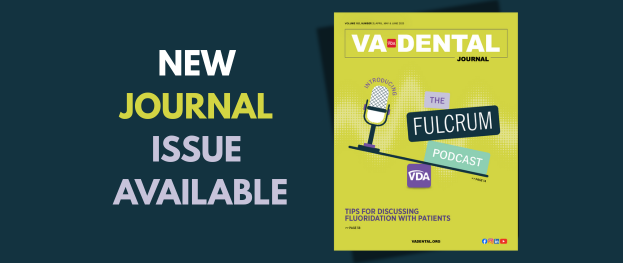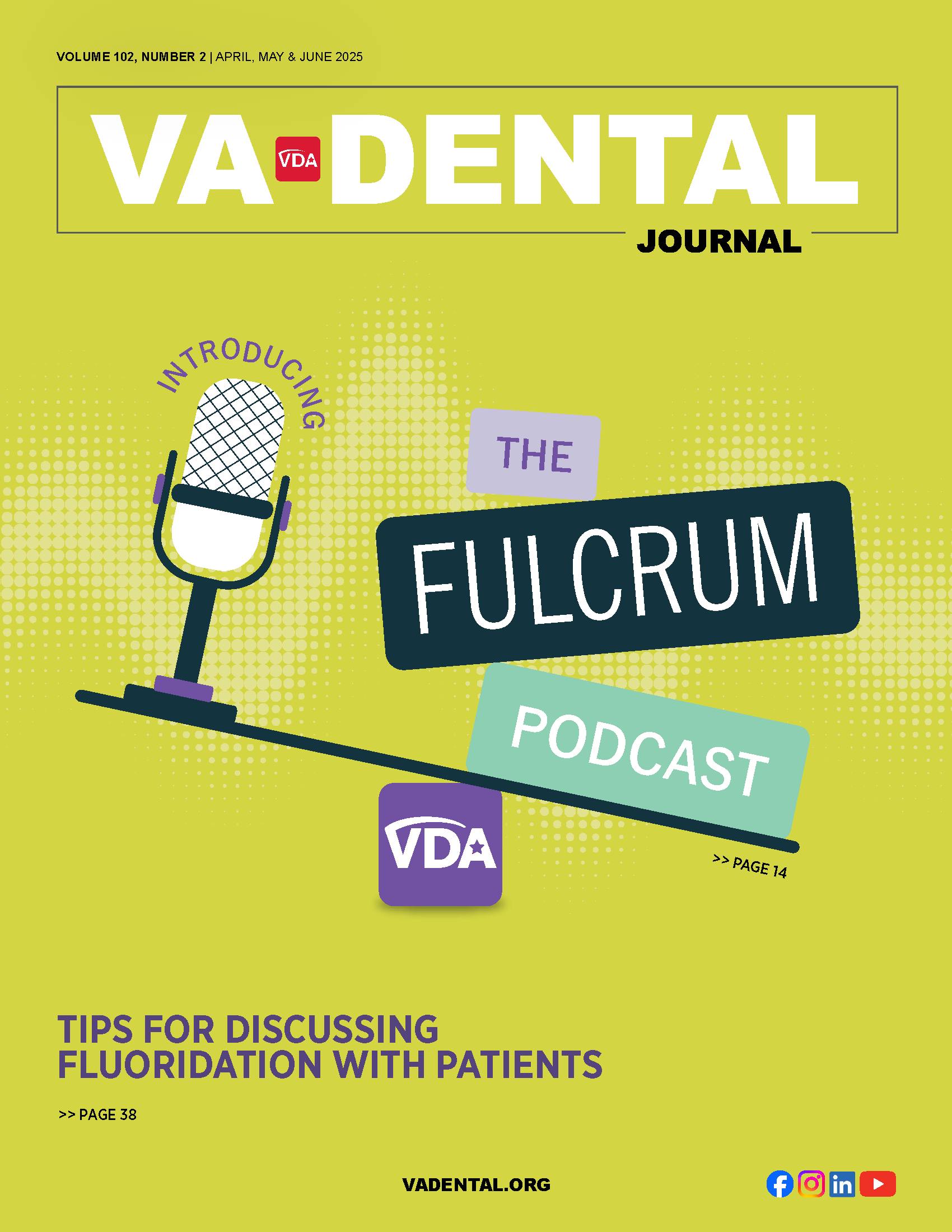Council on Government Affairs Report - Insurance Issues Workgroup
At our Committee Meetings in January 2017, the VDA Council on Government Affairs received a number of complaints from members regarding various insurance company policies. We formed a subcommittee with Dr. Mike Morgan doing most of the research about these complaints.
We requested input from our members and compiled an extensive list of complaints about insurance companies. We have had several meetings to discuss these issues and have engaged the services of a consultant. In addition, our lobbyists, Chuck Duvall and Tripp Perrin have given us invaluable advice.
Listed below are the specific issues that were brought to our attention. Some of these issues are being addressed by the ADA, some of them we will try to address by directly contacting the individual company (ies), some may be addressed by legislation and some can’t be solved because of existing laws.
- Crowns being denied because of no radiologic evidence despite a narrative being submitted. This has happened with cracked teeth even with a narrative.
- Periodontal scaling and root planing being denied because of no radiologic evidence despite there being 6+ mm pocket depths and narratives submitted.
- Insurance companies have been asking for the return of fees paid (“claw-backs”) because the insurance was cancelled. We had complaints that this was being done over a year after the treatment was rendered but could not get documentation.
- Contract provisions that prevent collection for non-covered services unless the provider has obtained written consent from the patient prior to treatment that the service would not be covered. An example of this would be a crown that was denied because it does not meet the insurance company’s carefully crafted definition and the insurance company notifies the patient that they are not responsible for payment because the dentist’s claim did not meet their definition of necessity.
- A directory listing should be required for participating providers. If the insurance company treats a provider’s claims as in network and benefits from the fee reduction, they should be required to list the provider in their provider directories.
- Substitute benefit such as payment for base metal crown only. A significant percentage of women are allergic to base metal crowns.
- Limitations on provider’s fee where the provider’s out-of-pocket lab expense exceeds the contracted allowable fee.
- Deemed participation by group. This is a practice whereby all providers within a group will be deemed participating if any one provider has signed an individual participation agreement.
- Delta of California and Tricare: They are advising patients to seek treatment at other “less expensive” practices, i.e. PPO vs Premier. The Council has reached out to Delta of Virginia on this issue. Delta of Virginia is NOT doing this and is aware of the VDA’s concern. This serves as an example of how we feel we should proceed. The ADA has written Delta letters protesting this policy.
- Silent PPO: This is where a patient has an insurance card but it is actually administered by another company. We should contact the offending company (ies) and attempt to resolve this so that it is clear what company is paying the claim and the fee schedule. This should be clearly stated on the patient’s insurance card. To date, 14 states have already enacted laws addressing this.
- Insurance Companies: Should clearly state in their patient information that they have the right to pay for a different treatment other than what the dentist and patient agreed upon solely based on cost. “Least expensive acceptable treatment” option.
- Insurance companies are “downcoding” or “bundling” fees. Some companies treat a separate Buccal and Occlusal restorations as a single class II restoration at a reduced fee. It is illegal for us to do the opposite and call a class II restoration two class I’s.
- Insurance companies should be required to supply their participating dentists with a current table of allowances.
- Some companies are extending the length of time between radiographs. In some cases, bitewings are only paid for every 24 months. Also, the replacement time for crowns, bridges, partial dentures and dentures is being extended from the traditional five years to seven or even ten years. This effectively extends our “warranty” far beyond any dental laboratory guarantee. We are trying to research this area. The ADA no longer compiles this type of information.
- Some of our members have received letters from insurance companies asking them to justify why their billings are outside the “norms” for that particular company. In addition, some of our members have been audited and insurance companies have asked for large amounts of fees returned based on just a few charts being audited. We have scheduled a meeting with one of the largest carriers in our area to discuss this.
We are asking the members of the VDA to send in any additional complaints and comments about insurance practices that they feel are unfair to us and our patients.
It is our feeling that we should proceed with the above items by first contacting the individual companies that are engaging in these practices and then proceed with either regulatory or legislative solutions. We have also contacted the ADA to see if they have suggestions regarding the above listed issues.
We need actual EOB’s showing clearly what the problem is. The EOBs should be totally redacted to remove all identifying information about the patient and the dentist. We have developed a form to send with the EOB. Please send us actual cases that clearly define the problem.
Insurance Issue Form
Questions? Contact Laura Givens - givens@vadental.org







